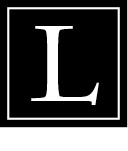The Last Dark (19 page)
Authors: Stephen R. Donaldson
The end must be opposed by the truth of stone and wood,
orcrest
and refusal.
“
Tell
her,” Covenant ordered; pleaded. “Remember forbidding. Promise me you’ll tell her.”
Now the Feroce appeared to grow stronger. They stood straighter. Their fires burned more brightly. “It is done,” they announced. “Be assured, Pure One. Even now, your words hasten. We are little, but we are also many. We inhabit our High God’s realm from verge to verge. Your command will be fulfilled.”
Like a sigh made flesh, Covenant sagged in Horrim Carabal’s coils. He had done what he could. Now there was only one dilemma left to consider. One intolerable choice to make.
—save or damn—
His frailty blurred such distinctions. The Lords had misremembered their prophecy about the wielder of white gold; or they had misunderstood it. The words should have been “save
and
damn.” If he let himself die now, his end would be wasted. And if he let himself be healed, his life would be wasted later.
Therefore he ought to choose life. While he lived, he could hope that something might change, for good or ill.
And betimes some wonder is wrought to redeem us
. Preferring death when life was offered was just despair by another name.
But, God, he was tired! He had already endured too much. In his present state, he imagined that the final darkness would be a kinder fate than hurtloam and more striving.
And he was a leper. For a man like him, nothing undermined his foundations more than being cured. Because he was who he was, he did not know how to bear the moral contradiction of being spared.
Like the
Haruchai
—
By that reasoning, he should have refused Brinn’s succor.
But he had always been weak. Time and again, he had turned away from the strictures of his illness because he loved the Land. And Linden. In his own way, he also loved being human.
And he had always needed help.
Under the right circumstances, weakness was a form of strength.
While he wandered in his personal gyre, circling its edges like trapped flotsam, the Feroce renewed their thetic chant. The arms of the lurker held firm, waiting. But Branl grew restive. He, too, was in pain. The damage to his body he would doubtless survive. Certainly he would ignore it. The damage to his spirit was another matter.
“Ur-Lord,” he said at last. “Hurtloam awaits you. Will you not accept its benison? Alone, I cannot preserve your life. The lurker and the Feroce cannot. Kevin’s Dirt will make corruption of your scalds until no recovery is possible.
“It was not for this that the
ak-Haru
healed your earlier hurts. That he saw worth in the lurker’s preservation does not entail that he desired your death.”
Covenant lifted his head, stared at the Humbled. With two words, Branl had shown him a way out of his confusion: Kevin’s Dirt. Hurtloam would heal him as completely as his various maimings permitted. But it had never altered his essential nature. And some of its effects might be transient. His illness might thrive again under the bale of Kevin’s Dirt.
Was that not the underlying purpose of Kastenessen’s curse? To thwart the deepest needs of those who loved the Land? In Linden’s case, to limit her access to Earthpower? In Covenant’s, to deny his fitness to be loved in return?
Save and damn.
Finally he faced the last of the Humbled. So that he would not be misunderstood, he told Branl, “Only if you join me.”
Once before, he had required the Master to accept healing. Now Branl needed it as much as he did, if for different reasons.
He had no idea what he would do if Branl refused. But the Humbled did not. Nodding once, Branl said, “If that is your wish. I have traveled too far from myself to gainsay you.”
Then he announced to the Feroce, “The Pure One has prepared himself. We accept your consolation, deeming it well-meant.”
In response, the chant of the creatures became a shout. Green that shed too little light flared and danced on all sides. The arms of the lurker let go.
When Covenant fell into the mud, his whole world became spangles of gold like the rising of little suns.


ater Branl drew him out of the hurtloam. Tentacles lifted Covenant and the Master again; carried them away. At the eastern edge of the Sarangrave, the lurker lowered them onto a swath of grass on a hillside unspoiled by ancient wars or poisons. Then the arms withdrew, leaving only a few of the Feroce to watch and wait.
But Covenant knew none of this. He was deeply asleep, resting as though he had received an act of grace.


hen he awoke, he came from the depths of dreams which he did not know how to interpret. He had sojourned among the Dead: they had given him obscure counsel. But they had stood, not in Andelain, but on the friable span of the Hazard, speaking of doom while below them raved the many maws of She Who Must Not Be Named, as ruinous as the Worm. Behind them, Branl had slain Clyme again and again; but the Dead had paid no heed. With infinite relish, the bane had devoured Elena and Linden and the future of the Forestals, making them participants in an eternal scream.
In dreams, time blurred and ran, as chaotic and rife with death as the mingled perils of the Sarangrave.
Forbidding, the Dead had urged. Forgotten truths.
The Chosen’s son.
Kastenessen.
A-Jeroth of the Seven Hells, who desires all things unmade.
Repeatedly Branl hacked at Clyme and
turiya
until only gobbets and blood remained.
Baffled and thwarted, Thomas Covenant opened his eyes to the grey murk of dawn in a world where the sun did not rise.
But his own condition seemed to repudiate Branl’s ferocity and Clyme’s death. He had slept deeply and long. God, he had
slept
. On this open grass, he had slept the sleep of renewed health, fathomless as the growing gaps between the stars. It was an anodyne that he had not expected, as salvific as hurtloam, and as necessary.
No doubt he had slept too long. Every hour counted against him. But he could not regret losing the night.
When he opened his eyes and looked at the sky, he saw the stars clearly. Those that remained were as bright as gems of Time, and as disconsolate as condemned children. One after another, they went on dying.
Their slow plight grieved him. Yet it was countered by the sheer freshness of his physical sensations. Every burn and blister had been replaced by a tingling that resembled eagerness. His heart beat with a vigor which he did not recognize, as though it had been unshackled after a lifetime of imprisonment. His fingers flexed as if they had never known excruciation. Potential smiles twitched in the muscles of his face. And his feet—By hell! He could feel his toes, actually
feel his toes
. They told him that his socks and boots were still sodden.
Hurtloam was a miracle: there was no other word for it.
And like his body, his health-sense had become stronger. It assured him that his new life would be temporary. Kevin’s Dirt shrouded the region, wreaking its incremental havoc; working against his restoration. Nevertheless he was grateful for any reprieve. The strange alchemy of hurtloam made even Clyme’s death seem less bitter. At least for a little while, the future did not look as bleak as this day, the second without true sunlight. When numbness returned to his fingers and toes—when his sight began to fail again—he would be able to bear it.
Propping his elbows on the thick grass of his bed, he raised his head and shoulders to gauge his circumstances.
He lay on a gradual slope that he did not remember, cushioned by turf like luxuriance. Therefore he was somewhere north of Lord Foul’s many battlefields; somewhere in the long wedge of hale ground between Sarangrave Flat and the Sunbirth Sea. The lurker must have carried him here.
Shaking his head in surprise at such consideration, he regarded his companion standing like a sentinel a score of paces past his feet. Branl appeared to be keeping watch on the rank mass of the wetland. Or he may have been—
Beyond the
Haruchai
, Covenant finally noticed a small cluster of emerald fires burning in the hands of four, no, five Feroce. They waited a few steps outside the border of their native waters. Branl may have been guarding Covenant against them; refusing them in some fashion.
Apparently their High God was not done with the Pure One.
Covenant was reluctant to face them. He did not want to recall Horrim Carabal’s peril, or to think about what the Humbled had sacrificed. But time was precious—and the Feroce had blessed him with hurtloam. They had promised to speak to Linden for him. They had earned his attention.
Sighing at the ache of memories as cruel as Joan’s suffering, Covenant pushed himself to stand.
Around him, murk veiled every feature of the landscape, turned hills and grass and marsh and sky to an indeterminate, irredeemable smudge. Only the wavering fires of the Feroce contradicted the universal twilight; and they cast too little illumination.
Awkwardly, as if he had forgotten how to walk, he went to join Branl.
Like him, the Master still wore a second skin of mud. A trivial concern: it would flake away as it dried; and in the meantime, it provided a measure of protection against the increasing coolness of the air. But under the mud, Branl’s tunic hung in tatters, eaten by the Flat’s corrosive waters. Indeed, Covenant’s own clothes were badly damaged. His jeans looked like they had been mauled, and his T-shirt was little more than scraps. Yet that, too, was trivial. Ruined attire suited the Unbeliever and his guardian.
Looking more closely, Covenant was relieved to find that Branl also had been healed. In more ways than one—A portion of the distress clenched and hidden behind his
Haruchai
stoicism had been eased. He looked like a man who had finally come to terms with an amputation, or with some other old wound.
Resting his halfhand on the Master’s shoulder, Covenant said, “I’m sorry.” Perhaps he would learn how to forgive Branl if he first asked forgiveness for himself. “I can only guess what killing that Raver cost you. But I regret it. I wish I hadn’t needed you to save me.”
Again.
Branl’s gaze did not waver. “You sought to spare us, ur-Lord,” he replied as though every human tone had been hammered out of his voice. “That you have ever done, though you have long known that no
Haruchai
wishes to be spared. To be denied the outcome of our deeds implies a judgment of unworth. Yet you are the ur-Lord, the Unbeliever. As we are known to you, so you are known to us. By long travail, we have learned that your choices are indeed a judgment of unworth. But it is yourself that you judge, yourself and no other. Therefore we found no insult in your wish to confront
turiya
Herem alone.”